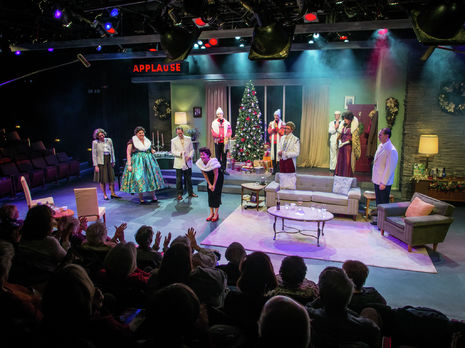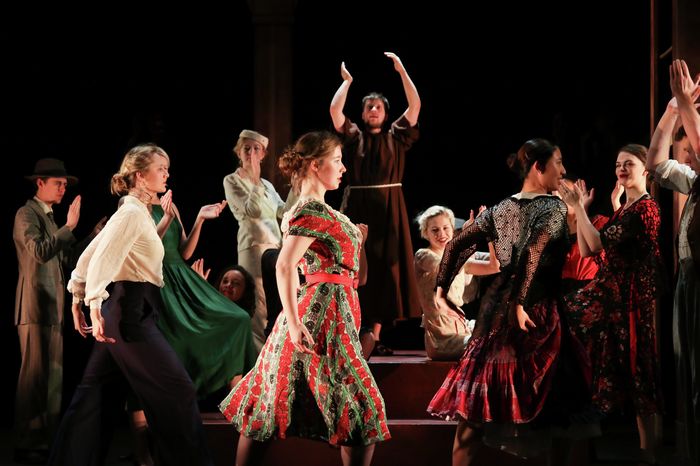Cue Applause: theatre without clapping
In her first column piece, Izzy Burns talks about her first theatre experience and why clapping is so important

Many people’s ‘first shows’ stick with them - mine was Matilda the Musical. I was just tall enough to lean my chin on the brass railings and can only really recall the two hours of performance as a blur of music and lights. I am, however, sure that when it was over I clapped so hard my hands hurt.
Anyone inclined to believe in the significance of ‘formative’ theatrical experience will be glad to know that I haven’t stopped noticing applause since; polite clapping as the curtains go up (an uncertain but well-meaning welcome); the desperately awkward applause of audiences smaller than the casts they are watching; the enthusiastic cheers of the friends and family bullied, cajoled and bribed into coming to see school productions.
At the end of the National Theatre at Home’s One Man, Two Guvnors, I stood up with my Dad and clapped. Our applause rattled around the living room, the awkwardness of the moment reminding us of the distance between us and the actors. The reality of life in a global pandemic flooded back in - the crowds, and their ritualistic appreciation of performance that had always been a definitive part of my experience of theatre, were now a biohazard.
Lockdown did have some unforeseen benefits. I saw more theatre than I would ever have been able to see live, as shows which previously depended on an expensive and time-consuming journey up to London suddenly became quality TV viewing. I saw Andrew Scott’s Hamlet, Phantom of the Opera, and admired the breadth of talent in the BBC’s re-working of Talking Heads.
Whilst nagged by the feeling that it wasn’t quite the same as watching an in-person stage production, I was grateful for the windows of escape streamed theatre offered. It felt more and more necessary as the weeks of lockdown dragged on, and the initial ‘blitz spirit’ faded to a general irritation with every member of my family except the dog.
“If we are going to create a new generation of theatre lovers, we have to make in-person performance more accessible”
There was a real sense from media and the theatre community that it was important to continue supporting the industry, which had been much harder hit than many others when it came to restrictions imposed by coronavirus. But this support has undoubtedly been focused on the biggest and most reputable theatres, leaving local and regional theatrical communities to wither financially.
There were, (early on), hopeful murmurs about the prevalence of live-streaming, with many suggesting that it created a possibility to democratise theatre. But this idea appears to sideline the reality that live theatre has an intangible sense of scale and community, and if we are going to create a new generation of theatre lovers, we have to make in-person performance more accessible.
Live-streams will rightly continue to be part of the cultural landscape, but everyone deserves that moment only live-theatre can give, in which they feel part of the applause, part of something bigger than themselves.
 Interviews / You don’t need to peak at Cambridge, says Robin Harding31 December 2025
Interviews / You don’t need to peak at Cambridge, says Robin Harding31 December 2025 News / Cambridge academics stand out in King’s 2026 Honours List2 January 2026
News / Cambridge academics stand out in King’s 2026 Honours List2 January 2026 Comment / What happened to men at Cambridge?31 December 2025
Comment / What happened to men at Cambridge?31 December 2025 News / Unions protest handling of redundancies at Epidemiology Unit30 December 2025
News / Unions protest handling of redundancies at Epidemiology Unit30 December 2025 News / Varsity’s biggest stories of 202531 December 2025
News / Varsity’s biggest stories of 202531 December 2025









